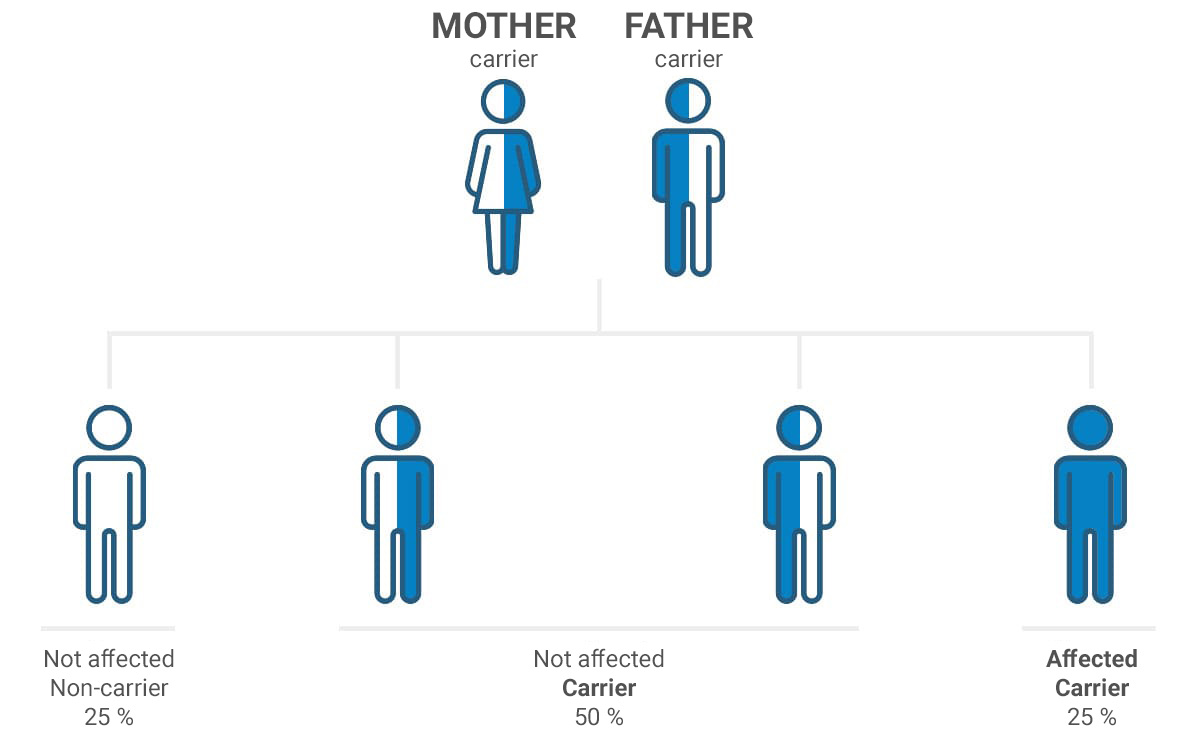Genetic Screening for Recessive and X-linked Diseases
Why is this study done?
Recessive hereditary diseases are a group of rare genetic diseases that occur only when an individual has two mutated copies of the gene related to the disease.
If both members of a couple are carriers of this type of mutation, there is a 25% risk of having an affected child.

Although individually rare, in society, they account for 20% of infant mortality and approximately 10% of pediatric hospital admissions.
These diseases have a higher incidence than Down syndrome.
Carriers of a recessive disease mutation are healthy, so no previous family history is necessary.
This test is designed to minimize the risk of having offspring with this type of disease.
If both members of a couple are carriers of this type of mutation, there is a 25% risk of having an affected child.
When should this test be done?
The ideal time is before conception so that pregnancy can be planned, and different alternatives studied in case of a positive result that puts the health of the couple’s offspring at risk.
The study can be performed sequentially, first in women to rule out both recessive diseases and X-linked diseases.
What does this test study?
This test includes genes that cause the most severe recessive diseases, with the highest known carrier frequency and childhood onset.
There are two panels:
- Basic Panel: It studies 16 genes of recessive diseases and 22 X-linked inheritance genes, in the case of women. This test provides sufficient guarantees to ensure maximum health in terms of morbidity and mortality.
- Expanded Panel: This study is focused on couples who want to have offspring with “maximum genetic information.” In this case, the test analyzes 552 genes, of which 91 genes are X-linked.
In both cases, the chosen technique for its performance is massive or NGS sequencing, which allows us to study the entire coding sequence of the gene, as well as its adjacent intronic regions. NGS-based testing increases diagnostic efficacy.









